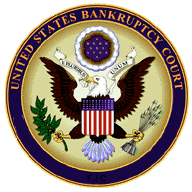Bankruptcy becomes an option for some student loan borrowers
We’ve written before about how student loans, unlike other forms of debt, can’t be discharged in bankruptcy–which is why it’s so important to be careful about how much you borrow.
Bankruptcy law says that, without proving “undue hardship,” a borrower can’t discharge a loan made for an “educational benefit.”
Bankruptcy law challenged

Image: Wikimedia Commons
Recently, however, bankruptcy courts have started ruling in favor of some student loan borrowers and have allowed them to discharge their debt, according to The Wall Street Journal.
And as student debt continues to climb, experts predict there will be an increase in bankruptcy cases brought before the courts to erase student loan debt.
There’s a catch, though — these borrowers who have successfully discharged their debt have faced special circumstances that allowed them to make the argument that their loans were not made for their “educational benefit.”
Borrowers who have challenged this part of the law have gotten discharged student loans obtained to attend schools without accreditation, as well as student loans taken out to study for a bar exam.
In the first case, the borrower’s lawyer argued that there was no “educational benefit” because the medical student was ineligible to sit for medical board exams in multiple states. In the second, the judge ruled that loan debt for bar exams is akin to consumer debt and is not a part of the “educational benefit” debt covered by student loans.
Most student debt ineligible for discharge
These cases could help pave the way for future challenges related to the “educational benefit” clause. If a student can’t get a job after college, did they avoid getting an “educational benefit”? What about student loans for room and board–are they part of the “educational benefit”? If a college shuts down and the borrower’s credits don’t transfer to a new school, does the same thing apply?
One important thing to note: This argument applies only to private student loans, which make up less than 10% of the more than $1.4 trillion in outstanding student debt.
The majority of student loans are issued by the federal government and are extremely unlikely to be eligible for discharge through bankruptcy, even if the borrower can make the case for a lack of an “education benefit.”
While it’s uncertain what concessions may be made in future years by judges on bankruptcy cases involving student loans, it’s highly likely that borrowers will continue to challenge the law. Given the difficulty of discharging student loans in bankruptcy, however (and federal student loans in particular), this should only be seen as a last resort.
Alternatives for borrowers with high student debt
Luckily, student loan borrowers who are struggling to repay their debt do have a lot of repayment options to make it easier.
Low-income borrowers should consider an income-based repayment plan, and deferment or forbearance may be an option during times of extreme hardship.
Refinancing student loans can be another great option for eligible borrowers and can potentially save them thousands on repayment.
And certain borrowers may even be eligible to have their student loans forgiven after they work in a particular field and make payments on their loans.
We work with student loan borrowers to help them sort through all of their options and figure out the best repayment plan for their situation. If you’d like to learn how we can help you, call Rick & Andy at 1-888-234-3907 or send us a message for a free consultation.
bankruptcy, repayment, repayment options, student debt, student loan debt, student loan default, student loan delinquency, student loan repayment, student loans
